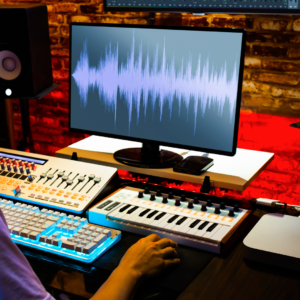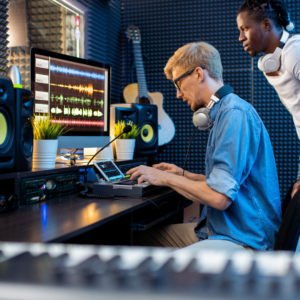There are several different types of USB microphones, but they all can be used to record your voice and music. USB microphones are especially useful when you want to record yourself at a friend’s or family member’s house or when you’re recording an audio clip for a video.
Some microphones can be used for singing. And some microphones can’t. Some microphones will do a fair job of it. And some microphones won’t. So, which ones are best for singing? That depends. But what you need depends on what you’re going to be doing. You’ll probably want a microphone that’s fairly good at picking up speech, so you’ll need something with a decent built-in microphone or a mic that’s designed to pick up speech. But you’re probably not going to be using your microphone for recording vocals for any extended periods, so a microphone that’s built to pick up sound is probably overkilling. So, you’ll probably want to get a microphone that’s designed to pick up singing.
The 2016 version of the USB microphone is one of the essential pieces of equipment that any singer or vocalist should have. Many singers and vocalists use the USB microphone in their live performances, and they do so by plugging the microphone into their computers to use it. The USB mic has a high-quality sound, which means that it is the best option when you are looking for a microphone that can record the sound in the best possible way.
What are the top brand USB microphones for singing and their features?
The best USB microphones are built to be robust, reliable, and easy to use. Here I’ve put together the top USB microphones for singing.
Blue Microphones Snowball USB microphone
If you’re looking for a USB microphone that performs amazingly well, I recommend the Blue Microphones Snowball USB microphone. The design is simple, but it does what it’s supposed to do. It boasts a high-quality audio signal and provides the best performance for recording vocals. The design is standard, which means you can easily fit it into a laptop case or bag. The microphone comes with a semi-hard case and a detachable cable.
The Audio-Technica USB Condenser Microphone
The Audio-Technica USB Condenser Microphone is one of the best USB microphones for singing, recording, and live purposes. The USB condenser microphone is a versatile tool that allows you to record your voice, instruments, and other sounds in high quality. Moreover, it is suitable for a range of applications such as: recording your music, singing, or karaoke, podcasting, voice-over, voice acting, and more.
Shure M7
Shure M7 is the newest generation of Shure’s legendary M series and a true pro-audio classic. The M7 is a high-performance, versatile, and reliable USB microphone designed to provide exceptional vocal performance with superior audio quality. The M7 features a cardioid pickup pattern and a newly designed dual-capsule dynamic element to deliver a smooth and natural sound.
The Samson G-Track Pro USB Microphone
The Samson G-Track Pro USB Microphone is the newest addition to the G-Track series. It’s designed to produce the full range of vocal and instrumental sounds, including classical, jazz, blues, rock, hip-hop, and other popular music styles. The form factor is very similar to the G-Track Wireless, but the G-Track Pro is plug-and-play ready out of the box and will work with any standard PC or Mac microphone input.
The Rode NT-USB Cardioid Condenser Microphone
The Rode NT-USB Cardioid Condenser Microphone is a dynamic microphone used to record vocals, instruments, speech, and sound effects. The mic is designed for a wide dynamic range and can capture the subtleties of your voice with precision. The mic is capable of recording high-quality audio with very low noise, even in challenging audio environments. The built-in noise-reduction circuitry effectively eliminates unwanted background noise to keep your voice heard easily. The mic is equipped with a flexible gooseneck that can be moved from one place to another. It’s also more durable than traditional microphones and is better suited for younger users with smaller hands.
Choosing the right microphone for a vocalist can be a daunting task because the job involves so many factors. For example, you’ll want to consider the microphone’s ease of use, the quality of sound, compatibility with the singer’s equipment, and the microphone’s cost.
Singers are often told they need better microphones to improve their sound and performance. Just as with musical instruments, microphones affect the sound you hear, and ultimately, the sound you make. As with musical instruments, the same goes for mics—great mics can improve your singing. However, many people are unsure what mic types to choose and how to choose them.





